 New Census data show that the percentage of uninsured Rhode Islanders was 5.7 percent in 2015, half the rate it was in 2013, the year before the Affordable Care Act (ACA) went into effect. In 2014, 7.4 percent were uninsured.
New Census data show that the percentage of uninsured Rhode Islanders was 5.7 percent in 2015, half the rate it was in 2013, the year before the Affordable Care Act (ACA) went into effect. In 2014, 7.4 percent were uninsured.
Two new avenues for affordable health insurance made available through the ACA have helped significant numbers of Rhode Islanders gain coverage. First, new Medicaid eligibility for adults (Medicaid expansion) allowed around 60,000 single adults with income marginally above the poverty line to have health insurance coverage.
Second, the new state exchange, HealthSourceRI, provided a pathway to coverage for another 35,000 Rhode Islanders who purchase private insurance. Almost 90 percent of enrollees, those with income below four times the poverty level, quality for federal tax credits to help pay their monthly premium. The majority of enrollees (60 percent) have income below two and half times the poverty level ($29,000) and also receive assistance paying for out of pocket costs including co-pays and deductibles. (Source: HealthSourceRI, Open Enrollment 2016)
According to the Rhode Island Annual Medicaid Expenditure Report for SFY 2015, the federal/state Medicaid program provides health insurance to one in four Rhode Islanders. In addition to the 60,000 newly eligible single adults, 150,000 children and families with lower income and 12,000 children with special health care needs have comprehensive insurance through Medicaid. Seniors (19,000) and people with disabilities (32,000) rely on Medicaid for the services they need to live safely in the community or in a facility when home-based care is not feasible.
 “Rhode Islanders should be proud that we are 7th in the nation for the percent of residents who have health insurance coverage”, said Linda Katz, Policy Director at the Economic Progress Institute. “With health insurance, people are more likely to keep up with yearly preventive care visits and people with chronic conditions can get the treatment they need to promote their well-being. Besides the obvious benefits for families and individuals, having a healthy work force is a good selling point for our state. Medicaid and coverage through HealthSourceRI are vital to ensuring that thousands of our residents can afford comprehensive health insurance.”
“Rhode Islanders should be proud that we are 7th in the nation for the percent of residents who have health insurance coverage”, said Linda Katz, Policy Director at the Economic Progress Institute. “With health insurance, people are more likely to keep up with yearly preventive care visits and people with chronic conditions can get the treatment they need to promote their well-being. Besides the obvious benefits for families and individuals, having a healthy work force is a good selling point for our state. Medicaid and coverage through HealthSourceRI are vital to ensuring that thousands of our residents can afford comprehensive health insurance.”

The letter Heather received a week before her appointment with the Department of Human Services (DHS) warned that not showing up for her scheduled appointment could seriously delay approval of her benefits. Having been recently laid off and in search of work, Heather made sure that she was not only a half hour early, but that her paperwork was in order.
Arriving at the DHS offices in Providence on Elmwood Avenue, she got into the line for those with appointments. The other line, for those without appointments, was longer and moved more slowly. Both lines stretched out of the waiting room.
Conditions in the waiting room, Heather told me, were “miserable.”

“People were standing in lines for hours,” said Heather. “A lot of people were turned away. A lot of them were single mothers. It was hot, and there was not a lot of room to sit. Children were running around, crying and screaming.” She said employees appeared to be overwhelmed and frustrated.
Optimally, DHS provides people in need with access to many services such as Medicaid, SNAP benefits, Rhode Island Works (RIW), Child Care Assistance Program (CCAP), LTSS, General Public Assistance (GPA) and access to various energy assistance programs like HEAP, WAP and HSR.
The delays, Heather was told, were because of the new computer system the DHS was using to approve benefits. The new system was supposed to make things more efficient. Instead, workers at the office were facing too many cases and a new system being rolled out without adequate training.
At a press conference on Thursday, DHS director Melba Depeña Affigne said that changes in staffing and the conversion to the new computer system would have “no impact on clients.” Michael DiBiase, director of the RI Department of Administration called the issues that Heather and others have described as “unfortunate.”
After four hours, Heather got her EBT card and was able to leave the DHS offices by 4:45pm. The waiting room was no less full, most of those waiting would have to return the next day to continue the process.
The new computer system, which has no official name, was supposed to be online in July, and is now slated to be fully operational by mid September. The system is supposed to reduce the amount of time prospective clients spend with social workers and has been billed as an “incredible tool for our workforce” that will “enhance customer service.”
Heather disagrees. The system, she says, is “designed to make you feel like shit about yourself.”
]]>
Melba Depeña Affigne, director of the RI Department of Human Services (DHS), was “surprised to hear [that clients] did not get service” at the Woonsocket DHS offices. The clients in question were referred from the Woonsocket offices to the DHS offices in Pawtucket, a four hour round trip by bus.
Michael DiBiase, director of the RI Department of Administration said, regarding the problems at the Woonsocket branch of the DHS that the “break in service was unfortunate” and will last “hopefully less than a month.”
DiBiase and Affigne were holding a press conference to explain the layoff of 70 DHS employees, mostly social workers, as part a major reorganization of the DHS and the launching of a new computerized eligibility system that is projected to save taxpayers millions.
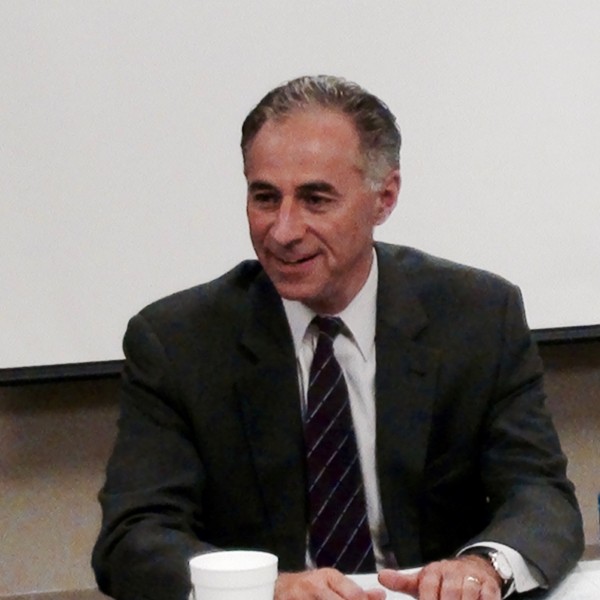
The laid off social workers, said DiBiase, will have a chance to apply for one of the more than fifty job openings at DCYF (Department of Children, Youth and Families). The layoffs are required, said Affigne, because of a “new staffing model” that will allow DHS to make significant cuts. The new model is “task based” and will not require supervisors trained in social work to manage by “case load.”
I asked Sue Pearlmutter, dean of the Rhode Island College School of Social Work if this means that the DHS is moving away from social workers advocating on behalf of clients and towards data entry technicians assisting clients using the computers.
“That has been my impression,” said Pearlmutter. The DHS is moving towards “a very different kind of process. Social workers engage with the client and work with the client.” The application process DHS is instituting makes “people take responsibility for their application at a kiosk or in a library.”
Often, these are “people in crisis” at a time when “completing an application is a daunting process.” Some adults and young adults, says Pearlmutter, “may find the process overwhelming. Removing a level of staff may cause more problems for people facing crisis.”
 As for the staff DHS is cutting, saying that there are openings at DCYF is disingenuous. Many of the staff losing their positions at DHS started at DCYF, said Pearlmutter. They took jobs at DHS “because the work at DCYF is so crisis oriented. It’s difficult and emotional work that many found they couldn’t do any more.”
As for the staff DHS is cutting, saying that there are openings at DCYF is disingenuous. Many of the staff losing their positions at DHS started at DCYF, said Pearlmutter. They took jobs at DHS “because the work at DCYF is so crisis oriented. It’s difficult and emotional work that many found they couldn’t do any more.”
Talking about the jobs at DCYF as being like the work at DHS “shows no understanding of the kind of work social work is,” says Pearlmutter.
The new computer system, which has no official name, it’s just the “New Integrated Eligibility System,” said Affigne, was supposed to be online in July, and is now slated to be operational in mid September. The system will reduce the amount of time prospective clients will spend with social workers. This is “by far the largest technology project that has ever been undertaken by the State of Rhode Island,” said DiBiase.
The new computer system, said Affigne, is an “incredible tool for our workforce” that will “enhance customer service.”
Lucie Burdick, president of Local 580 of the Service Employees International Union (SEIU), disagrees. She told RI Future that “this extremely expensive computer system, if it even works correctly someday, will never provide the quality of service a trained, educated, experienced human being provides. The computer pilot program is failing miserably at this point and costs are rising rapidly. It could have been done better and cheaper. The displacement of staff and the cost of human suffering that it has exacted on the population we serve is unconscionable.
“This fiasco is the 38 Studios of human services. The taxpayers and advocates for the poor should be outraged.”
DHS provides people in need with access to many services such as Medicaid, SNAP benefits, Rhode Island Works (RIW), Child Care Assistance Program (CCAP), LTSS, General Public Assistance (GPA) and access to various energy assistance programs like HEAP, WAP and HSR. Affigne said that about one in five Rhode Islanders use services offered at the DHS, and that they maintain six field offices, like the one in Woonsocket.
“What will be the impact on clients?” I asked.
Affigne replied, “There will be no impact on clients.”
Yet existing clients did not start receiving notifications of reduced services in Woonsocket until August 23, and the Woonsocket DHS began reduced services on the 19th. That’s two or thee days of people arriving at the Woonsocket offices and learning that they were in for a four hour bus ride to Pawtucket from a sign taped to the door.
As Bob Plain and I tried to ask questions to get to the heart of the issue of the actual impact that this transition will have on people trying to access needed state services, Kristin Gourlay, health care reporter for RIPR cut in.
“Presumably,” said Gourlay, “in September, when the system goes live, people won’t have to go to a field office, they can go to- if the have a computer at home they can use that, they could go to a public library and use a computer there or another social service agency…”
“Correct,” said Affigne.
This allowed DiBiase and Affigne to shrug off concerns about social workers and clients as mere “bumps” along the way towards an improved, (read: cheaper) system. Yet, at a time when poverty and income inequality are at all time highs, and the economy of Rhode Island is barely improving, “bumps” in the lives of the one in five Rhode Islanders applying for needed assistance can be catastrophic.
Here’s the video of RIFuture’s questions:
Here’s the video of the full press conference:
]]>
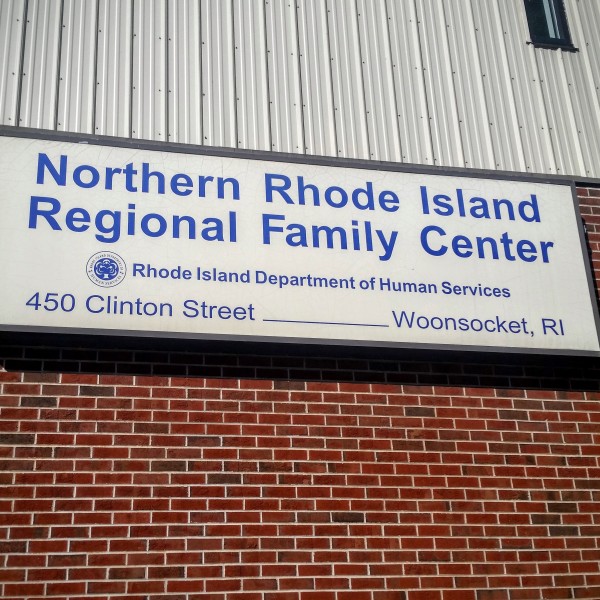 People in need of social services are being turn away from the Woonsocket branch of the RI Department of Human Services (DHS) as the offices are in the midst of a downsizing and relocation.
People in need of social services are being turn away from the Woonsocket branch of the RI Department of Human Services (DHS) as the offices are in the midst of a downsizing and relocation.
On Tuesday some clients went to the DHS offices in Woonsocket and were told that they could not access the services they needed. They were referred to the Pawtucket offices, requiring a four hour bus ride, two hours each way. DHS employees in Woonsocket said their branch right now can only deliver “limited services.” I was told that all questions regarding the move and reduced services needed to be referred to DHS director Melba Depeña Affigne.
The reason for the change in service seems to be related to 70 layoffs at DHS that, according to a news release, is the result of a new software system coming in September.
“Moving from a software system designed more than 30 years ago to a modern, digital system requires different staffing needs,” said Depeña Affigne in a news release from the Department of Administration sent today. There will be a 3pm press conference explaining the layoffs in detail.
“The new eligibility and enrollment software system will make it easier and more convenient for Rhode Islanders to access those vital services,” Depeña Affigne said in the press release.
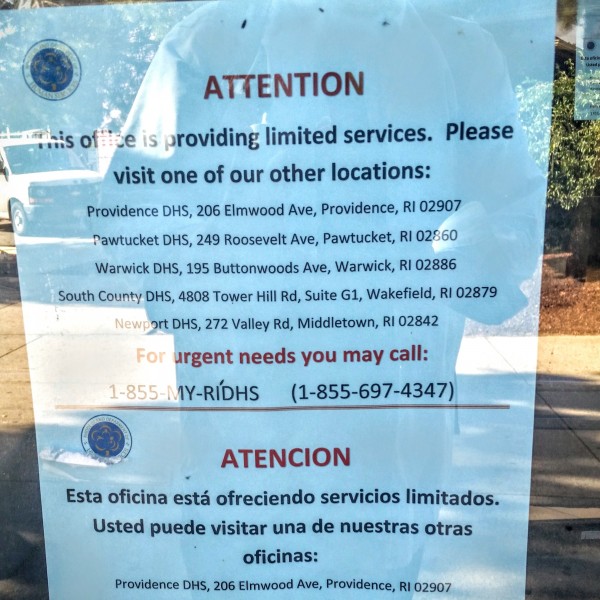
DHS provides vital community and family assistance by way of food and cash assistance, child care assistance and Medicaid. DHS manages SNAP benefits, Rhode Island Works (RIW), Child Care Assistance Program (CCAP), LTSS, General Public Assistance (GPA) and provides access to various energy assistance programs like HEAP, WAP and HSR.
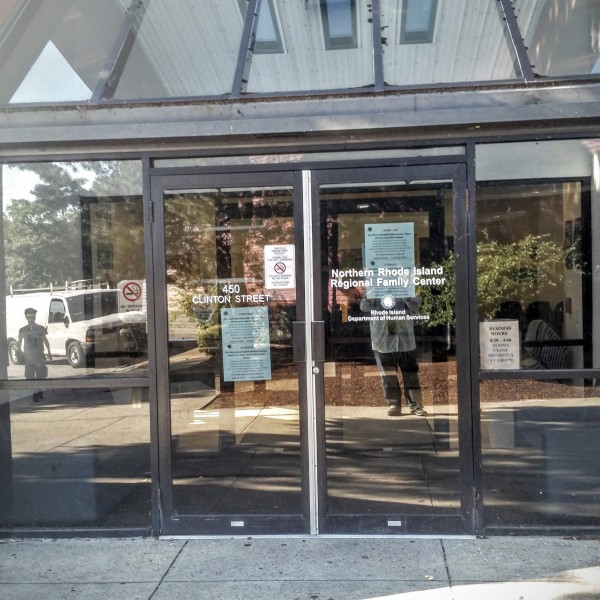 The clients DHS serve are among the most vulnerable in the state, who often have difficulty with transportation and access to the internet. Closing offices, downsizing staff and limiting services, even if only for a month, could have catastrophic effects on families.
The clients DHS serve are among the most vulnerable in the state, who often have difficulty with transportation and access to the internet. Closing offices, downsizing staff and limiting services, even if only for a month, could have catastrophic effects on families.
In a letter to SNAP Advisory Committee members, SNAP Administrator Iwona Ramian wrote that the lease for the current offices expires on August 31, and the effective date for the new offices is September 1, with transition between offices beginning Monday, August 22. Notification of the move was mailed to clients on Monday, meaning many people did not know about the gap in services.
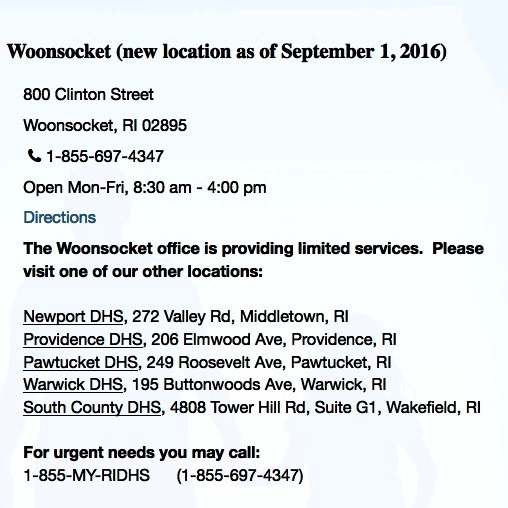
Though Ramian in her letter says that “no gap in services is anticipated” the DHS website says, “The Woonsocket office is providing limited services” and refers clients to other locations.
Further calling Woonsocket DHS services into question is Ramian’s assertion that staffing levels at the Woonsocket office will be reduced from 36 to 14. The 22 employees who will no longer be in Woonsocket are being relocated to Providence.
A drop to 14 staff members is a big reduction. The implementation of a new on-line system for determining eligibility and needs was supposed to be in place before the change in location and reduction in staff, but the new system is experiencing delays.
Ramian notes that “the [new] office space will be shared with a comprehensive multi-service, non-profit, health and human services agency, giving customers a one-stop service location. The office telephone and facsimile numbers will stay the same. She’s referring to Community Care Alliance, a multi-service not-for-profit health and human services provider consisting of the original community mental health center serving the 6-town region, a school, the Woonsocket Family Shelter, the Northern RI Family Visitation Center (for DCYF-involved families), a youth success program, day treatment, partial hospital and acute stabilization for substance use and co-occurring behavioral health disorders and more.
Calls to the DHS offices have not been returned.
]]>Among the basic provisions of this legislation are the following:
- Annual accrual of 56 hours (equivalent to seven 8-hour work days) of earned sick leave.
- Ability to make use of paid leave after 90 days.
- Rollover of unused sick leave into new calendar year, with option to instead pay employees for unused time.
- Protection of earned sick leave time in the event an employee is transferred to a different division of the same company, and in the event that “an employer succeeds or takes the place of an existing employer”.
Until national legislation is passed providing earned paid sick time, state and local provisions can provide this important family-friendly employment standard. As of March 2016, five states have passed earned paid sick time legislation, including three of our New England neighbors, Connecticut, Massachusetts, and Vermont. As well, at least fifteen cities and counties have passed legislation providing earned paid sick leave, including San Francisco, Washington, DC, New York, Philadelphia, Portland (OR), and San Diego.
The experience of those jurisdictions that have been leaders in enacting family-supporting earned paid sick leave is instructive. In San Francisco, the first jurisdiction to introduce earned paid sick leave, employment in the five years after implementation of their earned paid sick leave provisions grew twice as fast in the city than in neighboring counties lacking earned paid sick leave, and grew even faster in the food service and hospitality industries with significant concentrations of workers benefiting from the new provisions.
A report by the Center on Economic and Policy Research found that in neighboring Connecticut, the policy was implemented at little to no cost for business (consistent with findings from an Economic Policy Institute study prior to passage), and that two years after initial implementation, more than three-quarters of employers were supportive of the law.
Provision of earned paid sick days results in significant savings for both employers and government:
Employer savings are considerable, and include savings due to:
- increased worker productivity,
- Lower turnover rates
- Reduced workplace contagion from reduced presenteeism (attending work while sick)
- Fewer workplace injuries
Government saves through savings to public health insurance programs, through reduced reliance on emergency rooms for treatment of illnesses. With availability of paid sick time, an employee is able to schedule an appointment with his/her primary care provider for diagnosis and treatment. One recent study shows that extending earned paid sick leave to all currently uncovered would save over $1.1 billion annually, including savings of $517 million to public health insurance programs such as Medicaid. Other savings result from reduced reliance on public assistance, as nearly one in four employees report losing a job or being threatened with job loss for taking time off due to personal or family illness. Earned paid sick leave gives employees much needed economic security, which is critical to family stability.
 One significant reason to pass paid sick leave legislation is that failing to do so further exacerbates disparities based on income. The Economic Policy Institute shows in stark terms that “rich people have paid sick days [while] poor people do not.” While only one in five (20 percent) of private sector workers in the bottom 10 percent of wage earners has earned paid sick time, nearly nine in ten (87 percent) of top-five wage earners have earned paid sick time.
One significant reason to pass paid sick leave legislation is that failing to do so further exacerbates disparities based on income. The Economic Policy Institute shows in stark terms that “rich people have paid sick days [while] poor people do not.” While only one in five (20 percent) of private sector workers in the bottom 10 percent of wage earners has earned paid sick time, nearly nine in ten (87 percent) of top-five wage earners have earned paid sick time.
The case for providing earned paid sick leave to workers in Rhode Island is strong. It’s good for businesses and workers, making Rhode Island a more family-friendly place to live and work.
]]> Commercial health insurers in Rhode Island will need to have 50 percent of their payments based on quality by 2018 under a new plan announced by the Office of the Health Insurance Commissioner (OHIC) Thursday.
Commercial health insurers in Rhode Island will need to have 50 percent of their payments based on quality by 2018 under a new plan announced by the Office of the Health Insurance Commissioner (OHIC) Thursday.
We’ve reduced the corporate tax rate in Rhode Island.
“We exempted sales tax on energy costs to assist businesses.
“We raised the exemption on the estate tax to keep successful folks in the State of Rhode Island.
“We eliminated the social security tax on many Rhode Islanders so we can assist the middle class after a lifetime of commitments so that they can stay and thrive in Rhode Island.
“We eliminated tax on radiology services to assist that industry.”
Acting as the self-appointed Yin to Mattiello’s Yang, Paiva-Weed spoke about how the Speaker and Governor stood with her “to take some of the most difficult votes the General Assembly could take to cut the budget…
One of them was last year… and that was cutting $70 million from Medicaid. That was a hard vote…
“In addition, many of you in this room were not standing here cheering when we had to make those difficult votes to ensure the passage of pension reform. And that was a vote that quite honestly kept me up many nights, because it really did hurt people…”
“It really did hurt people.” Let that sink in for a moment.
“We raised the exemption on the estate tax to keep successful folks in the State of Rhode Island,” the Speaker had said, not five minutes earlier.

The message was as jarring as it was obvious: Tax cuts on the rich hurt people. Our leaders know this, but they don’t want to believe it. It’s called cognitive dissonance.
Beyond just hurting people, poorly targeted tax cuts do nothing to help the greater economy and instead impoverish a government’s ability to maintain infrastructure. Hence, RhodeWorks.
RhodeWorks will shift the financial burden of repairing RI’s roads and bridges onto trucking companies, who will maintain their profits by increasing the price of goods. This will burden the poor and middle class much more than it will the rich, who will be able to manage slight price increases by drawing on the extra money they keep through the tax cuts they’ve been granted.
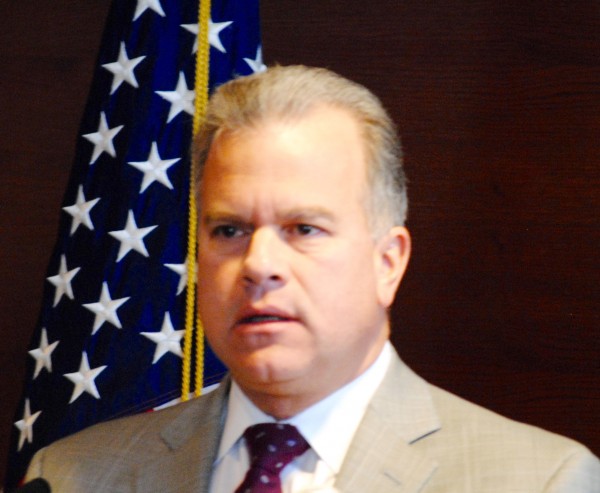
Despite Paiva-Weed’s protestations, she has not cast “difficult votes”. A difficult vote would be one in which she stood up for those without power and against the money of the connected elite. A difficult vote would be one of compassion and courage.
No, the votes Paiva-Weed made were easy, because the people she hurt have no power to hold her accountable for their pain. Her conscience might bother her, but what good is a conscience when the corporate tax rate needs to be cut?
As for Mattiello, after he proudly listed his accomplishments, he said, “We have been laser focused on moving our economy forward and doing the kind of things that build economic wealth and growth and jobs in the State of Rhode Island.”
“And then I hear,” said Mattiello, pausing as the cognitive dissonance crackled through his brain, “that there’s a consensus that we have the worst roads and bridges in the country and it’s the leading concern of businesses. It’s the number one driving force for businesses in their decision making.” Another pause.
Mattiello’s pauses say it all. All that money he gave away to his well off neighbors was for nothing. All those cuts to pensions and Medicaid were for nothing and all those people hurt by these cuts were hurt for nothing.
Our leaders bought the lies of economic charlatans, gave away millions in tax cuts, impoverished our state and hurt people terribly, only to find that what was really needed was a strong infrastructure, an infrastructure we might have been able to afford if we weren’t crippling our economy by cutting the taxes of dead millionaires.
]]> A recent Gallup poll revealed that Rhode Island has the lowest uninsured rate in the country, at 2.7 percent, as well as one of five states that saw its uninsured rate decline by 10 points or more. But, how did that happen? Anya Wallack, director of HealthSourceRI, was able to provide some answers.
A recent Gallup poll revealed that Rhode Island has the lowest uninsured rate in the country, at 2.7 percent, as well as one of five states that saw its uninsured rate decline by 10 points or more. But, how did that happen? Anya Wallack, director of HealthSourceRI, was able to provide some answers.
“You come to HealthSource, and right there, you can very easily sign up for coverage regardless of your income,” she said. “We’ve developed an infrastructure that’s really designed for this unified approach.”
Wallack explained Rhode Island decided to create its own exchange because it presented “significant advantages, in terms of local control and customer service.” With a state based exchange, rather than a federal one, they could better tailor their services to the needs of Rhode Islanders.
HealthSourceRI uses what she called a “one door policy,” meaning that customers could come in and not only apply for health insurance, but check to see if they were eligible for Medicaid and other benefits. This is where much of the exchange’s success comes from, since this is a policy only a few states have adopted.
Wallack said that making customers jump through hoops only serves to make things more confusing, and they miss out on important information because of it. Right now, Wallack and her team are expanding their open door policy, and making it possible for customers to begin to apply for other assistance programs like TANF or SNAP.
“When we’re done building our system, you’ll be able to sign up for those with one stop shopping,” she said.
Wallack added that there are a number of ways that customers can use this one stop shopping, that all services are provided online, over the phone, or in person. Face-to-face assistance is also provided right in the community health centers, so customers can sign up for insurance right in their hometown. HealthSourceRI also has enrollment events during the open enrollment period, which is from Nov. 1 to the end of January each year. During open enrollment, a customer can renew, reenroll, or sign up for coverage, or just change their plan. There are two other types of enrollments as well- special enrollment and Medicaid coverage. Special enrollment occurs when a customer’s circumstances change throughout the year and they need to change their plan, and Medicaid coverage happens throughout the year to see if a customer is eligible for Medicaid.
“We try to find any avenue where we can come into contact with people who may be looking for coverage,” Wallack said concerning their community accessibility.
This level of accessibility has worked for the exchange, proved not only by the Gallup poll but the hard numbers that HealthSource has collected so far for this year. In 2015, they have enrolled 32,554 individuals as of July 31. Most people who enrolled were age 55 and over, sitting at 29 percent. 53 percent of enrollees were female, while 47 percent were male. More than half of the enrollees – 59 percent – were eligible for financial assistance in the form of an advanced premium tax credit and cost-sharing reductions. These numbers show an upward trend from last year, with over 7,000 more enrollees. Small businesses are signing up through HealthSource as well, with 542 employers enrolled in 2015, compared to the 381 from 2014.
The Gallup poll found that states that set up their own exchange and expanded Medicaid saw the biggest drop in their uninsured rate, something that the Ocean State has been doing since day one. According to Wallack, as long as they continue with this, Rhode Island can serve as a model for other states and their healthcare exchanges, especially as HealthSourceRI moves forward. Within the next month, HealthSource will be releasing its own survey, which will give more accurate results than the Gallup one, because it will only look at Rhode Island. But, the national survey still shows a trend, and that Rhode Island is headed in the right direction.
“What I take from this, is that those policy decisions, as well as our decisions to take a coordinated approach, was successful for us,” Wallack said.
HealthSource’s next step is to find those last remaining uninsured individuals, and understand why they’re uninsured, as well as work with employers to make sure that they are able to retain coverage. Now, their job is to help control healthcare cost growth, provide support for small business, and provide affordable choices for everyone, especially that last 2.7 percent.
]]> Over 150 front line medical caregivers rallied on Newport Avenue in Pawtucket yesterday afternoon to demand a minimum wage of $15. The timing and location of the event was carefully considered.
Over 150 front line medical caregivers rallied on Newport Avenue in Pawtucket yesterday afternoon to demand a minimum wage of $15. The timing and location of the event was carefully considered.
It was the 50th anniversary of Medicare and Medicaid. The location, near Slater Park, is around the corner from two healthcare providers, ARC of Blackstone Valley, which provides services to adults with developmental disabilities and the Pawtucket Center, a Genesis Heath Care skilled nursing facility.
The rally was also just two miles from the Massachusetts border, where home care workers recently won a minimum wage of $15 to be phased in over the next few years. Rhode Island does not pay nearly as much.
SEIU 1199, representing the healthcare workers, released figures showing that at Pawtucket Skilled Nursing & Rehab, the starting rate is $11.75. 63 percent of workers make less than $15. At ARC of Blackstone Valley many direct care staffers earn $10.75 and 94 percent earn less than $15. Meanwhile, two miles up the street, a caregiver could find a job paying $15.
I spoke with two women whose adult, disabled children are cared for at ARC of Blackstone Valley. Both attested to the excellent care their families receive and to the need for paying better wages. The caregivers at ARC are like family, said Pat, whose daughter Rachel has many special care requirements.
Two women who work as personal care attendants in Massachusetts also addressed the rally. Deborah Hahn said, “…if Massachusetts PCAs can win $15, if New York fast food workers can win $15, you can too.”
This event is seen as part of the “expanding #fightfor15 movement” which has been defying expectations and scoring significant wins in recent weeks. The healthcare workers were joined at the rally by a host of labor and community groups, including the AFL-CIO, Unite Here! 217, Jobs with Justice, Fuerza Laboral, NEARI, Teamsters 251, UNAP, UFCW 328, and the RI Progressive Democrats. State Representatives David Bennett, Mary Duffy Messier and Scott Slater were also on hand.
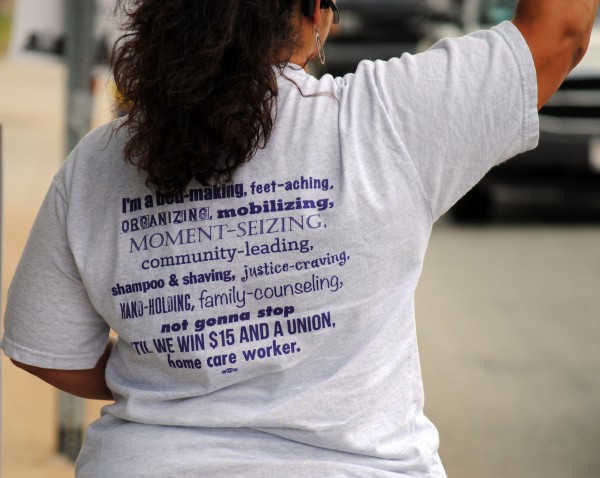



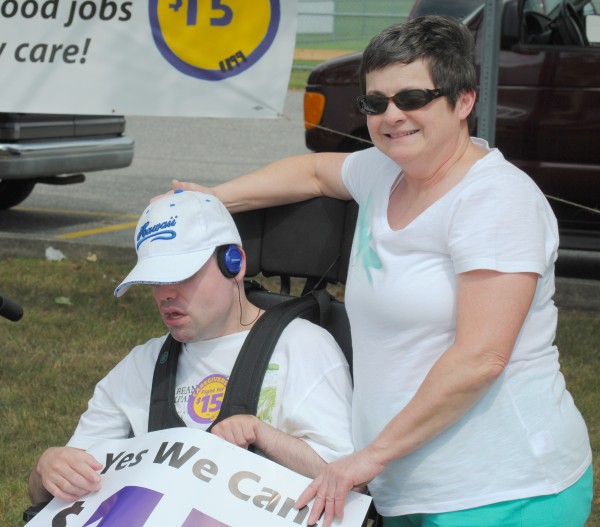
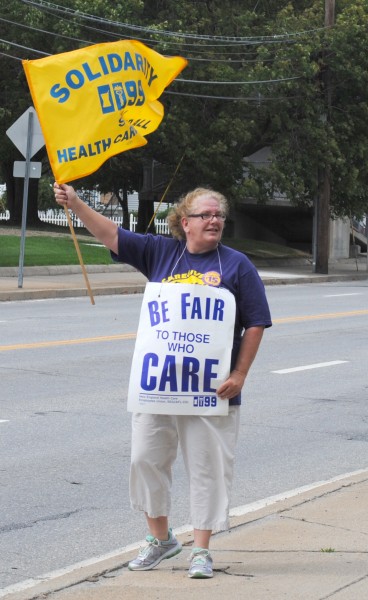


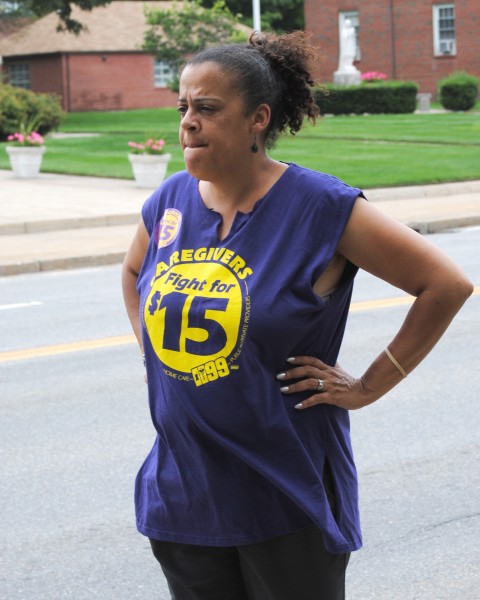



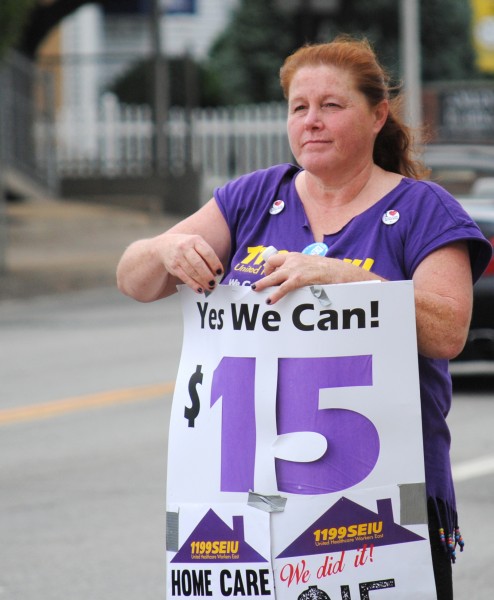
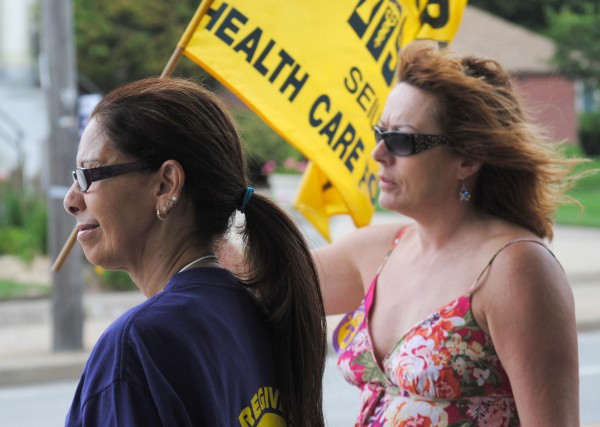


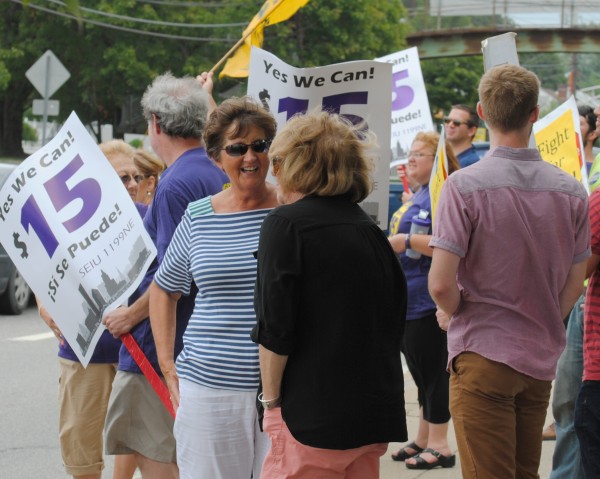
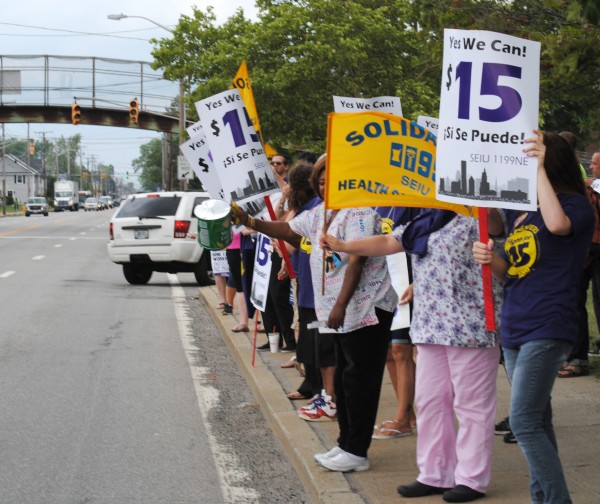






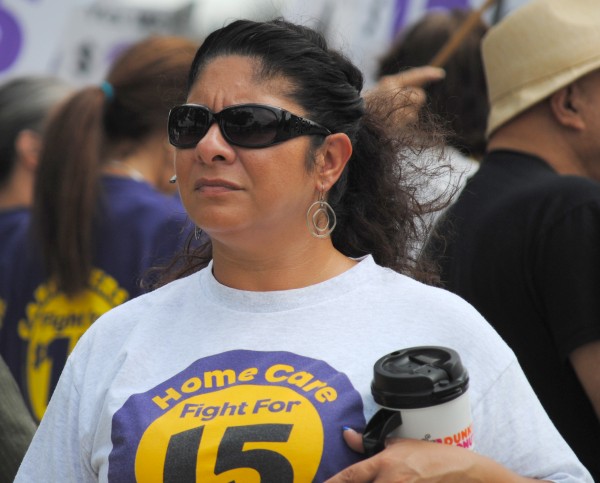





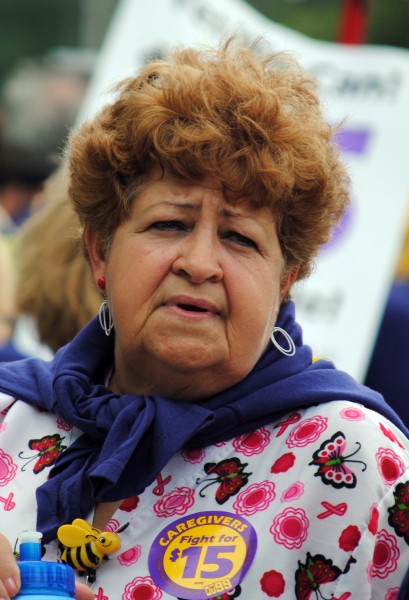



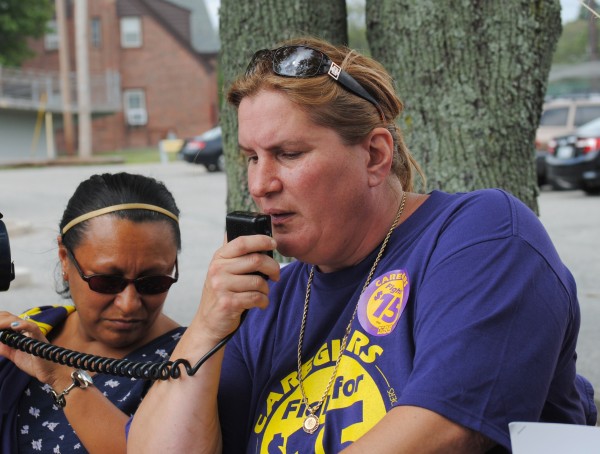
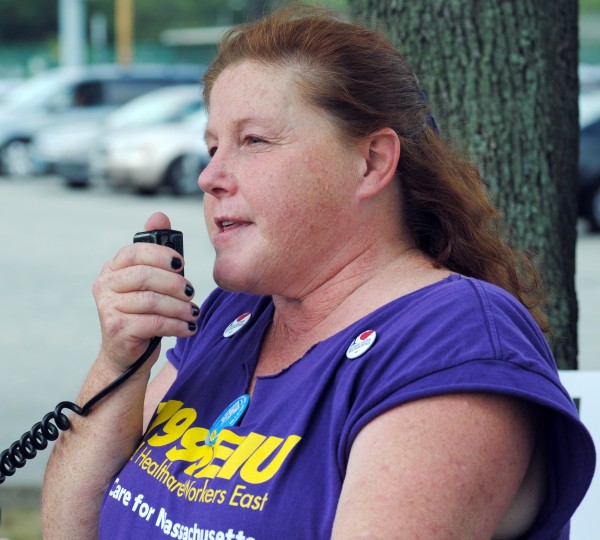






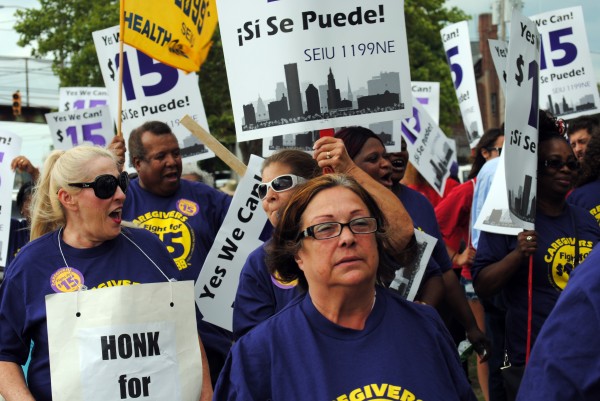



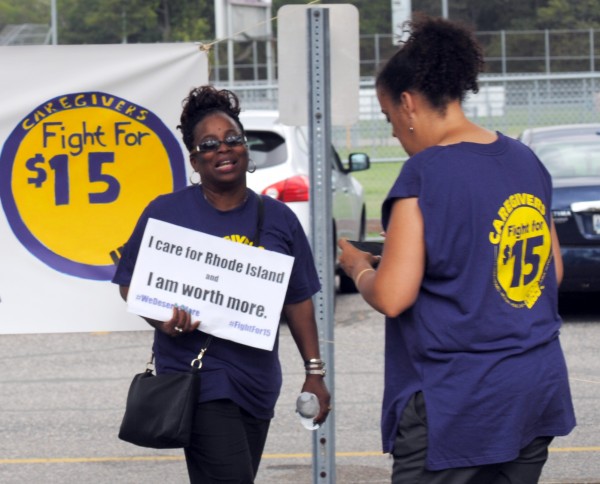
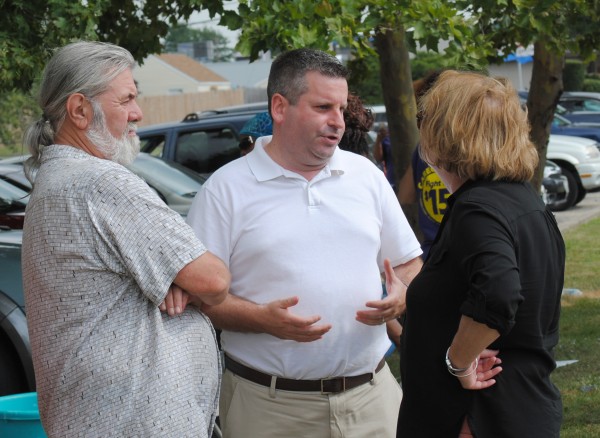

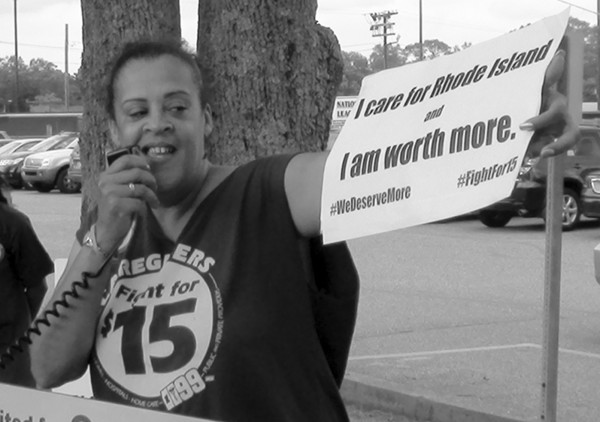


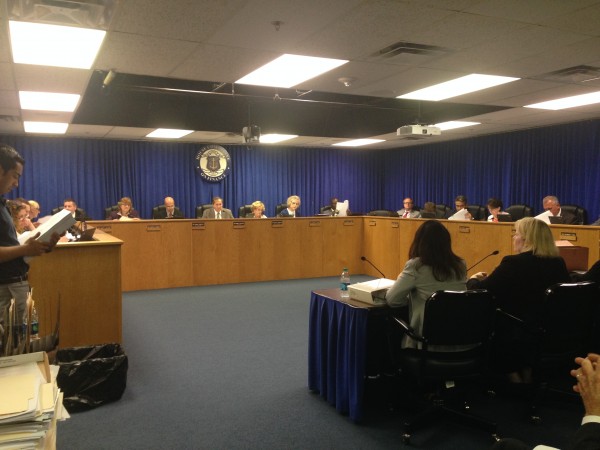
After much deliberation, the House Finance Committee gave a unanimous 19-0 vote on the FY 2016 budget late on Tuesday night, which included $37.7 million more than the proposed budget given by Governor Gina Raimondo back in March. The legislative budget proposal is for $8.67 billion dollars, with $3.55 billion from general revenue contributing to that.
“We concur with many of the governor’s initiatives for economic development,” House Finance Chairman Raymond Gallison (D-District 69) said in a press briefing tonight.
According to Gallison, the committee, in large part, accepted Raimondo’s budget, but there were some key provisions that saw change, including Social Security, Medicaid, and sales taxes to businesses.
Those who made between $80,000 and $100,000 will be exempt from paying social security income tax. These tax cuts will give retired Rhode Islanders $9.3 million in tax relief. Businesses are also now exempt from paying the sales tax on corporate utilities. Governor Raimondo had originally proposed phasing it out over five years, but will instead be taken out all at once this year. The earned income tax credit for middle to low income households has also increased from 10 percent to 12.5 percent.
The budget outlines a 2.5 percent Medicaid cut for hospitals, and a 2 percent cut for nursing homes. Gallison said this provides more protection for nursing homes. The House budget cuts Medicaid roughly $67 million, a far cry from the $90 million that the governor had proposed, but the hospital license fee has been increased to 5.862 percent, which would bring in $13 million in additional revenue.
“Funding to maintain HealthSource RI is included in the budget,” Gallison said, outlining the distribution changes to its funding. Now, individuals will pay a surcharge of 2.86 percent on their monthly premiums, and businesses will pay a .59 percent surcharge. The budget allocates $2.6 million for HealthSource RI going into FY 2016. There is also no more additional surcharge for outpatient and imaging services.
Full-day kindergarten is another key provision, with the governor allocating $1.4 million from general revenue to fund programs in the seven communities that don’t offer full-day kindergarten yet. Educational aid was increased by $35.8 million in order to pour money into the educational funding formula. There was also $20 million added for school construction purposes.
Higher education saw an increase of $7 million. The Rhode Island Higher Education Assistance Authority is being downsized, with its responsibilities now being transferred to the Council of Post Secondary Education and the Office of the General Treasurer.
Other major provisions within the bill include cuts to all eight local tourism bureaus, a $2 million increase for RIPTA, and a $0.25 increase in the state sales tax on cigarettes, bringing it up to $3.75 per pack. The tax increase is estimated to bring in $1.7 million in revenue.
What is absent from the budget is just as significant as what is present.
“This budget does not contain anything whatsoever to do with a proposal for a stadium, or any tolls on trucks as proposed by the governor,” Gallison said during the hearing. Also notably absent is the “Taylor Swift tax” on million dollar homes in the state.
Speaker of the House Nicholas Mattiello has gone on the record saying that the proposed budget is business friendly, and will allow for economic development in the state.
“The budget that’s going to be voted on tonight is very pro-business, pro-economy. It’s going to serve as a catalyst for existing businesses as well as working to attract new businesses to the state of Rhode Island,” he told members of the media on Tuesday.
Gallison agreed with that sentiment, giving his own statement at the beginning of the hearing.
“We continue to move Rhode Island onto an economic path to enable businesses to continue to grow,” he said.
The bill is scheduled to go to the House of Representatives floor next Tuesday.
]]>